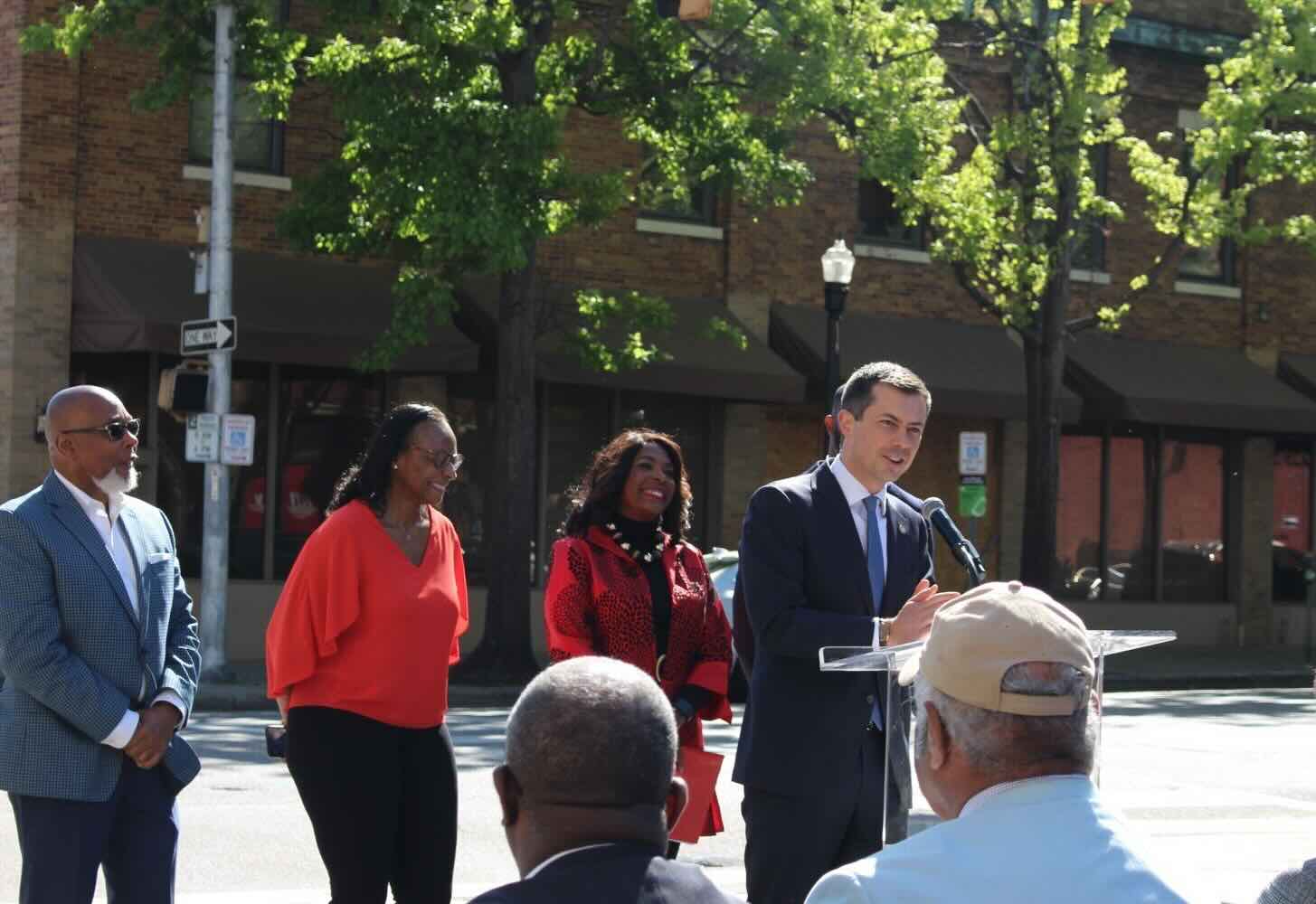ImpactAlpha, Jan. 31 – It’s distressingly easy to find places where city finances are distorted by systemic racism or outright bigotry.
It’s harder to spot projects that are using the tools of finance to redress social harms and advance racial equity.
Activest, the investment research and analytics firm, made its reputation by calling out credit risks in cities that, for example, are reliant on excessive fees and fines on their own residents of color, starting with Ferguson, Mo., where Michael Brown was killed by police in 2015. A well-documented “Black tax” (for example, here, here and here) extracts higher interest payments based on often-misperceived risks in cities with majority Black populations.
To finance solutions, Activest is preparing to become an investment advisor itself. The firm will help investors back municipal bonds and other fixed-income products that move capital to cities and projects that embody what it calls “fiscal justice.” With Florida-based Community Capital Management, Activest later this year plans to launch the FIRE Fund, for fixed-income racial equity, Activest’s Ryan Bowers told ImpactAlpha.
“FIRE addresses the way that debt in the form of fixed-income products has been inaccessible, extractive, and harmful for Black residents,” Bowers said. “FIRE provides a different model of investing that centers the voice and perspective of Black people and communities and takes a regenerative approach to community wealth building.”
Join Agents of Impact Call No. 48. Activist’s Ryan Bowers will join Diane Manuel of Adasina Social Capital, Eric Glass of Justice Capital and other Agents of Impact to explore “Investable opportunities in high-impact municipal finance” on ImpactAlpha’s call tomorrow, Wednesday, Feb. 1, at 10am PT, 1pm ET / 6pm London. Special guest: Greater Share’s Dana Bezerra. Final call to RSVP.
Bowers conceded that investment opportunities remain scarce on the solutions side of racial equity issues. FIRE will look beyond standard municipal bonds to, for example, provide debt for community development financial institutions that finance small businesses in low-income communities. It will also invest in bonds from special districts for schools and water systems, and even corporate bonds targeted to social needs, such as broadband infrastructure.
The goal is “to have a toolkit that goes beyond what we don’t need, to talking more proactively about the things that we do need,” Bowers said. “To say, ‘We need this in our community. This needs to be a priority. We need clean water. We need affordable housing. We need broadband.’”
Active engagement
The FIRE Fund builds upon the lessons of Activest’s Fiscal Justice Municipal Strategy, launched in 2020 with Adasina Social Capital to test whether investing in muni bonds could alleviate inequities faced by communities of color. Adasina invested the $60 million allocation to mostly-Black cities, water districts, school districts and historically Black colleges and universities.
Both strategies reflect Activest’s intention to show up not just with research and analysis, but with investment capital. As a pooled fund, FIRE is intended to be a broader vehicle in both its investment targets and also its investors. Bowers said the goal is to mobilize billions and, with lower minimums, be available to retail investors as well as to institutions and high net-worth individuals and families.
The fund’s “engagement” strategies will likewise be broader, working with cities to structure bond offerings that specifically address racial inequalities, as well as continuing to call out extractive practices that undermine community well-being along with fiscal health.
The $160 million social bond issued by the city of Chicago last week is an example of the kind of proactive instrument the FIRE fund may look for. The bond will finance affordable housing, electric vehicles, cleanup of vacant lots and rehabilitation of abandoned buildings, along with the planting of at least 75,000 trees over five years. With minimums of only $1,000, it was specifically geared to individual investors, especially Chicago residents, who bought up 8% of the bonds.
High demand for the bonds helped lower the city’s cost of capital. In recent months, New York and Atlanta also have realized at least modest cost savings for “social bonds” targeted at recreation, transportation, public safety and other capital projects. Bowers said Activest is working with debt-plagued Puerto Rico on equitable municipal practices that support residents’ economic mobility as well as housing, water and infrastructure.
The emergence of impact investors is – slowly, slowly – changing the economics of the municipal bond market, said David Sand of Community Capital Management, the $4 billion asset manager that is helping Activest stand up the FIRE fund.
“It’s harder to fund a prison or to finance a prison. And hopefully, it’s easier to finance the right kind of economic development or addressing income inequality,” Sand said. “It’s happening now. There are real dollars going in this direction. And so a product like what FIRE is going to be can be a wedge to direct other capital in that direction.”
Risk premium
The city of Memphis, which has been roiled this month by the police beating and killing of Tyre Nichols after a traffic stop, highlights the nuances that come with executing a fiscal justice strategy. More than 64% of Memphis’ population is Black, and the higher interest rate the city has had to pay on its bonds has been cited as an example of the Black tax that hamstrings the efforts of many Black-majority cities to improve their schools, streets and neighborhoods.
From Activest’s perspective, however, the city and surrounding county also demonstrate investment risk factors that are often not reflected in traditional municipal credit ratings. Shelby County’s practices around pretrial detention and cash bail drive up costs to taxpayers and fall more heavily on the area’s Black and brown population, according to the ACLU. Memphis’ ratio of police officers to residents ranks near the top of similar-sized cities, according to the Police Scorecard, and 57% of all arrests in recent years were for low-level offenses.
The trick is to know which kind of mispriced risk will predominate going forward.
“It is the case where one person’s Black tax is another person’s premium returns,” Bowers said, acknowledging that in some cases the legacy of systemic racism can make it more attractive to invest in underestimated cities. For cities that are improving their racial-equity performance, the FIRE fund aims to lower that risk premium over time.
Bowers said research has shown that their lack of access to capital has forced many historically Black colleges and universities, as well as majority-Black cities, to better manage their finances over time. At Self-Help Credit Union in North Carolina, Activest co-founder Napoleon Wallace saw how providing home mortgages in Black and brown communities could prove that risks of default were lower than commonly perceived, drawing in banks and lowering borrowing costs.
“At first, it could have been seen as an arbitrage strategy,” he said. “We’re doing the same thing in the municipal market, to really show that it’s actually a safe bet to invest in Black and brown communities. And that you can have market-rate returns, but also have an incredibly deep impact in Black cities that are going out on a limb and putting out equitable policies and cutting-edge work on behalf of their residents.”
Bill of Rights
What’s needed, Bowers said, is something like a citizen’s bill of municipal-finance rights.
“Citizens deserve to have a police force that isn’t pulling them over for infractions just to raise revenue,” he said. “And citizens also deserve to have their voice in budgeting, and budget decisions.”
A citizens’ bill of rights would prioritize current residents over attracting new residents, as do many economic development or urban renewal projects.
“It would have to do with basic rights, like education and water. We have places like Jackson, Mississippi, which are in an almost perpetual state of water crisis because of the lack of infrastructure there,” Bowers said. “Citizens deserve to have access to clean drinking water. Citizens across the country deserve having access to lead-free pipes, but also lead-free schools and schools that are adequately ventilated.”
Not many cities embody such values for all of their residents, making a strategy like FIRE both difficult to execute and urgently needed. Activest is working to ensure that standards for social bonds include racial justice, citizen voice and reparative public finance.
“A lot of that doesn’t really exist. You’re just pulling from the best of what’s out there, which is, unfortunately, not a lot,” Bowers said. “Part of what we do is really just truth-telling to say, ‘There are not enough equitable practices.’”
“Hopefully that will create demand for more social bonds that are truly getting at a practice of equity and inclusion.”











